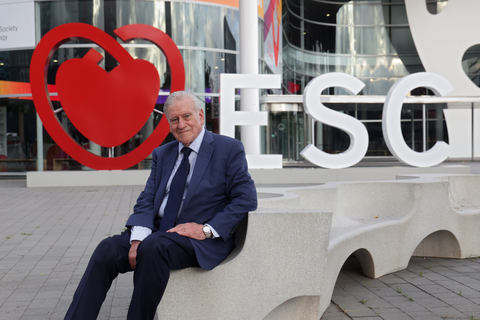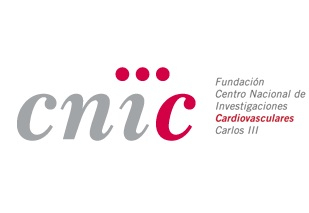The Polypill Reduces Cardiovascular Mortality by 33% in Patients Treated After Myocardial Infarction
The Polypill Reduces Cardiovascular Mortality by 33% in Patients Treated After Myocardial Infarction
MADRID--(BUSINESS WIRE)--The polypill developed by the CNIC and Ferrer, which includes three drugs (aspirin, an angiotensin-converting enzyme (ACE) inhibitor, and a statin), is effective at preventing secondary adverse cardiovascular events in people who have previously had a heart attack. The polypill reduces mortality from cardiovascular causes in this population by 33%.
This is the finding of the SECURE study, coordinated by the Spanish National Center for Cardiovascular Research (CNIC). The study results were presented today in a Hot Line session at the European Society of Cardiology meeting (ESC 2022) in Barcelona and are published in The New England Journal of Medicine (NEJM)1.
Dr. Valentín Fuster, principal investigator of the SECURE study, CNIC General Director, Director of Mount Sinai Heart and Physician-in-Chief of The Mount Sinai Hospital, said “the results of the SECURE study show for the first time that the polypill achieves clinically relevant reductions in the recurrent cardiovascular events among people who have recovered from a previous heart attack”.
SECURE included 2499 patients from 7 European countries (Spain, Italy, Germany, the Czech Republic, France, Poland, and Hungary) recovering after a myocardial infarction. The study participants were randomly assigned to receive standard therapy or the CNIC polypill*. The average age of the participants was 76 years, and 31% were women. The study population included 77.9% with hypertension, 57.4% with diabetes, and 51.3% with a history of tobacco smoking.
The SECURE trial analyzed the incidence of four major cardiovascular events: death from cardiovascular causes, non-fatal myocardial infarction, non-fatal stroke, and emergency coronary revascularization (the restoration of blood flow through a blocked coronary artery). The study followed patients for an average of 3 years and produced conclusive results: patients taking the polypill had a 24% lower risk of these four events than patients taking the three drugs separately.
The standout finding of the study is the effect of the polypill on the key outcome of cardiovascular related death, which showed a relative reduction of 33%, from 71 patients in the group receiving standard treatment to just 48 in the polypill group.
The study also found that patients in the polypill group had a higher level of treatment adherence than those in the control group, thus confirming the findings of the earlier FOCUS2 study, also funded by the European Union.
According to Oscar Pérez, Chief Marketing, Market Access and Business Development Officer at Ferrer, “the 33% reduction in cardiovascular mortality demonstrates the efficacy of treatment with Trinomia compared to standard treatment and it represents an important step in our mission to provide significant and differential value to people who suffer from serious health conditions”.
The SECURE trial was funded by the European Union Horizon 2020 research and innovation program (trial identifier NCT02596126).
- Polypill Strategy in Secondary Cardiovascular Prevention Castellano JM, Fuster V et al. New England Journal of Medicine (NEJM). 2022 Aug.
- Castellano JM, Sanz G, Peñalvo JL, Bansilal S, Fernández-Ortiz A, Alvarez L et al. A polypill strategy to improve adherence: results from the FOCUS project. J Am Coll Cardiol. 2014 Nov 18-25;64(20):2071-82
* Trinomia®, Sincronium®, Iltria® contains aspirin (100 mg), the ACE inhibitor ramipril (2.5, 5, or 10 mg), and atorvastatin (20 or 40 mg).
Contacts
For more information or interviews:
Fátima Lois: Head of Communication - CNIC. flois@cnic.es / 639282477
Alba Soler: Head of Communication - Ferrer. asolerc@ferrer.com / 699 904 180


